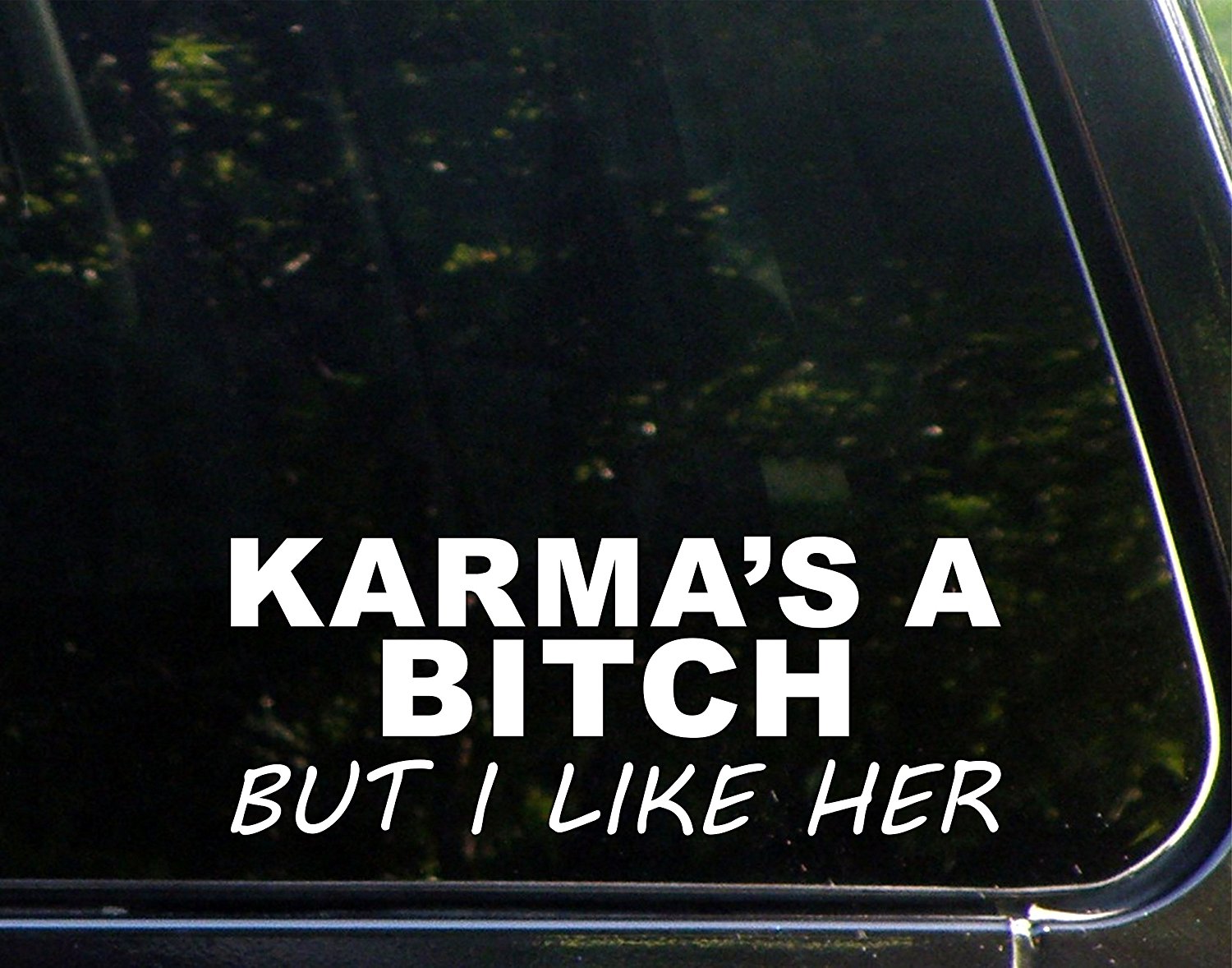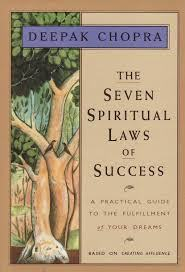Deepak Chopra‘s book, “The Seven Spiritual Laws of Success,” has been such a touchstone for me that I’m writing about each of the seven laws over the coming weeks.
The Law of Karma

Karma is the law of cause and effect — like the old saying, what you sow is what you reap.
In this chapter on the law of karma, Deepak Chopra says everything that is happening in this moment is the result of the choices we’ve made in the past.
I’ve struggled with this idea in the past. It felt both unrealistic, like naive exhortations that “Any kid can grow up to be president!”and punitive, blaming someone for being born into terrible circumstances.
My take has evolved, though. A black girl born in the south in the 1930s had a very different starting point from a white boy born to parents with wealth and influence … well, anywhere and any time … but then based on the initial advantages or disadvantages you were dealt, and the resources you did or didn’t have available, what choices did you make? What did you do to make the most of where you began?
Karma isn’t a cosmic judge punishing you for bad behavior. It’s conscious choice making and accepting the consequences for your choices.
You choose how you react to people and circumstances
 Do you get furious when you’re stuck in traffic, irritated by your neighbor or dejected by criticism from your boss?
Do you get furious when you’re stuck in traffic, irritated by your neighbor or dejected by criticism from your boss?
Most of us have repetitious and predictable responses to our environments and we forget we have a choice about whether and how we react, Chopra says. We don’t have to have a Pavlovian response to the outside world.
For example, are you offended by an insult or flattered by a compliment? Those are understandable choices, but they’re choices. You don’t need to react at all.
“If you step back for a moment and witness the choices you are making as you make those choices, then in fact in just this act of witnessing, you take the whole process from the unconscious realm to the conscious realm,” Chopra says.
My husband, John, and I have been doing the Headspace guided meditation series on anxiety and one of the techniques for dealing with anxiety, and thoughts in general, is to simply note them. There’s a thought, it’s negative. I’ve heard similar advice for labeling emotion: observing it and deciding what to call it.
I think in both cases, the goal is to become conscious of what I’m thinking or feeling, so I can decide if that’s how I want to continue to feel.
Trust your heart and your gut when you choose
To make a good choice, Chopra suggests listening to your body. What do you feel in your belly or heart? Do you feel comfort or is something telling you no?
When you make a choice, ask yourself what the consequences are and whether this choice will bring happiness to you and those around you.
I find it helpful to think about a decision in the past tense. My wise career coach Kim Ann Curtin taught me this technique. Sometimes when a fork in the road is in the future, I can get caught in my head, making endless lists of pros and cons. But years ago, when I had a significant job choice to make, Kim suggested I imagine it’s the moments after I’ve hung up the phone and either accepted or turned down the position. It was astonishing how quickly my stomach gave me the answer!
Listening to your body can create happiness for you and those around you by guiding you to the right choice, Chopra says. He’s even firmer than that, saying there’s one right choice.
I read an article years ago, that I’ve sadly not been able to find, that said instead of stressing so much about making the single best choice, we should put more effort into making the choice we made work for us.
I don’t believe there’s only one true love for each person, or that there’s only one job, one house, one way to deal with your family … I absolutely believe that some choices are better than others, and my body knows which ones they are, but I also believe we can make multiple choices successful if we choose to. I don’t want the pressure of searching for one perfect answer. I’m more comfortable accepting that I’ll make a good choice given the information I have available now, and I’ll adjust course as needed.
Your past informs your present choices, which create your future
“You future is generated by the choices you are making in every moment of your life,” Chopra says.
Chopra points out this cycle: You take an action, which creates a memory, which can generate desire, which triggers action again.
I love to eat and drink, so here’s an example: I eat the delicious mushroom macaroni and cheese at Atlantic Chip Chop, which creates a memory of the deliciousness, so I want to eat more.
Conversely, I resisted green smoothies because I didn’t have a memory of liking them. No memory, no desire, no action. Then I actually tried smoothies, realized I love them, and created a loop of action-memory-desire-action.
I take this as a caution about choice making. Memories are limited by my past, so unless I only want to relive my life thus far on a loop, I need to push myself to choose the unfamiliar to build new desires. Try it, you’ll like it.
Dealing with karmic debts
We sometimes make bad choices, which can hurt others or ourselves. This is negative cause and effect. If we’ve created karmic debt, we have three choices:
- Pay your karmic debts, which can involve suffering for your choices
- Transmute or transform your karma, by learning from your experience to make it beneficial — can you make the world better because of your awareness?
- Transcend your karma, washing it clean through meditation
How can you put the law of karma to work?
- Witness the choices you make and bring them to your conscious awareness
- When you make a choice, ask yourself about the consequences of this choice and whether it will bring happiness to you and others
- Ask your body for guidance
Past posts in this series:


6 Comments
Leave a reply